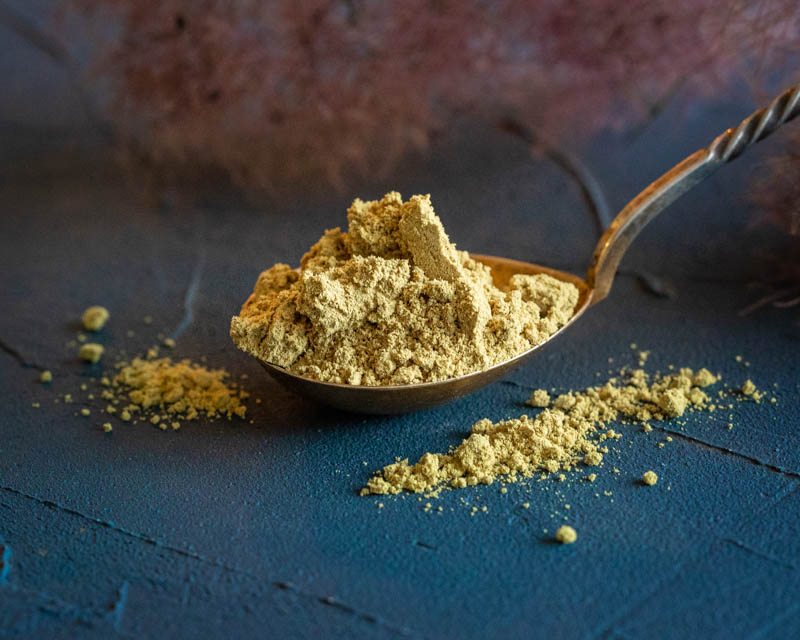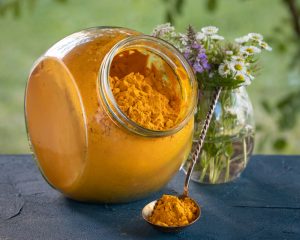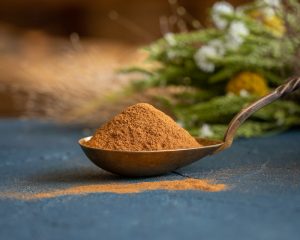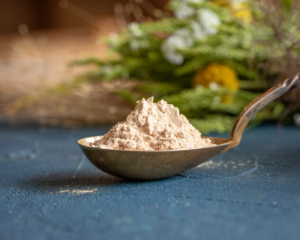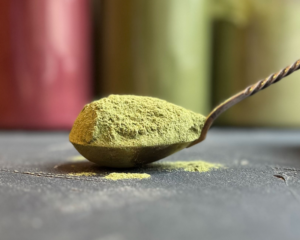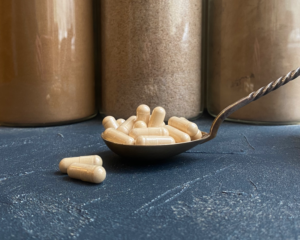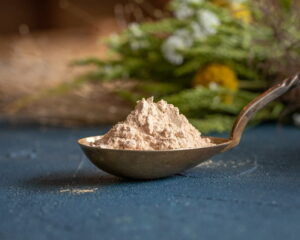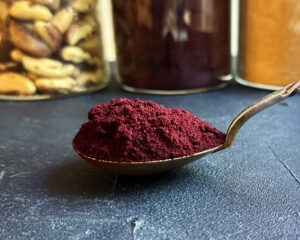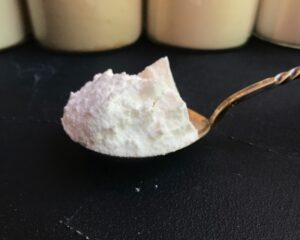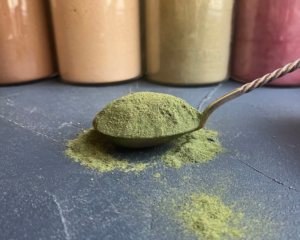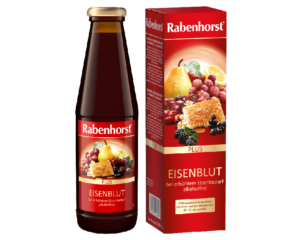Organic ground ginger
From 2.40€
Ginger is considered to be one of the most valuable and widely used herbs and its healing properties have been known for many centuries. Ginger, Latin for Zingiber officinale, is a perennial plant that grows mainly in China, India and Nepal. Ginger comes from the same plant family as cardamom and turmeric. The pungent taste of ginger is mainly due to ketones, more specifically gingerols, which are the main constituents of ginger that have been studied in many health-related research studies. Ginger has been used in India and China for thousands of years. The ginger is thought to have arrived in the Roman Empire from India 2,000 years ago and then spread across Europe.
As with many medicinal herbs, the health benefits of ginger have been passed on by word of mouth, and there is a lack of scientific evidence to support many claims. However, in recent years, a large body of research on ginger and the properties of its various constituents has confirmed its versatile health benefits. So ginger is not only delicious, it is also very good for your health.
The most commonly used part of the ginger plant is the terrestrial rhizome, sometimes incorrectly called the root. When using ginger, you should think of “digestion, lungs and circulation”, as these are the areas where it is most beneficial. Let’s name some of the many benefits of ginger: it reduces cold symptoms, relieves cough and breathing difficulties, relieves sore throat, helps to eliminate toxins, stimulates digestion, prevents nausea, stimulates appetite, improves circulation, relieves pain. It is thought to help you stay younger for longer.
Ginger is used both fresh and dried. Fresh ginger is safe for most people. Dried ginger is sharper and may be too hot for some, so use it more sparingly.
– Fresh ginger is excellent for colds, coughs, vomiting, nausea and morning sickness. It also has an appetite stimulating effect, it helps to remove toxins by stimulating blood circulation in the body and has a mild laxative effect.
– Dried ginger has more bitterness than fresh, so it warms the body more, is more suitable for reducing excess moisture and mucus. Both fresh and dried ginger help to kick-start digestion. Due to the warming effect of ginger, it is not recommended for ulcers and fever.
– Dried ginger powder and fresh ginger are used as a spice in cooking. It also goes well with other spices such as turmeric, cumin, coriander, fennel and cinnamon. Ginger is used in sauces, curries, marinades, soups, stews, casseroles and also makes a very good tea. Ginger is particularly good in the winter season. Ginger tea not only provides cosy warmth on cold winter days, but when drunk with biscuits and other sweets it gives them a wonderful warming taste. Probably most of us can’t do without ginger-flavoured treats on the Christmas table.
Attention! It is safe to consume dried ginger, but it is not recommended to consume more than 5 grams per day.
Recipes:
– Prepare a few apples, cut out the stems and seeds and place them in a baking dish with 1/2 cup of water. Grate fresh ginger into the raisin-cinnamon mixture. Fill the apples with the mixture and bake at 170 C for about 30 minutes. After baking, drizzle with agave or maple syrup.
– Slice fresh ginger, sprinkle with lemon juice and eat with a pinch of Himalayan salt. It is said to help in the absorption of nutrients.
– Grate 1 teaspoon of fresh ginger very finely (to a porridge-like consistency), add a pinch of Himalayan salt and a drop of oil, cook for 10-15 minutes. before lunch. It stimulates digestion.
– Chai Masala tea spice blend:
6 spoonfuls dry ginger powder 45g
½ cup raw cardamom pods or 80 g raw cardamom powder
¼ cup cloves or 18 g clove powder
¼ cup of black pepper or 30 g black pepper powder
1-1.5 cinnamon sticks or 8g cinnamon powder
Grind all the ingredients with a coffee or spice grinder to a coarse powder. Mix the ingredients well and store in an airtight container in a dry and dark place. This mixture can be made from already ground spices. Use 1/4 to 1/2 teaspoon of this spice mix for each cup of Chai Masala.
Sources: https://someindiangirl.com, https://www.tcmworld.org, https://www.banyanbotanicals.com
NB!
The information provided here should not be interpreted as a recommendation for treatment or other types of health problems.
We recommend that you make personal health decisions after evaluating various sources of information.
100% Organic ground ginger
Energy value 347 kcal
Fats 6 g
Carbohydrates 70,8 g
Protein 9,1 g
Dried ginger is also a source of trace elements and minerals such as zinc, phosphorus, iron, selenium, manganese as well as vitamins A, B1 (thiamine), B2 (riboflavin), B6, C and K.
Store in a cool, dry place.

